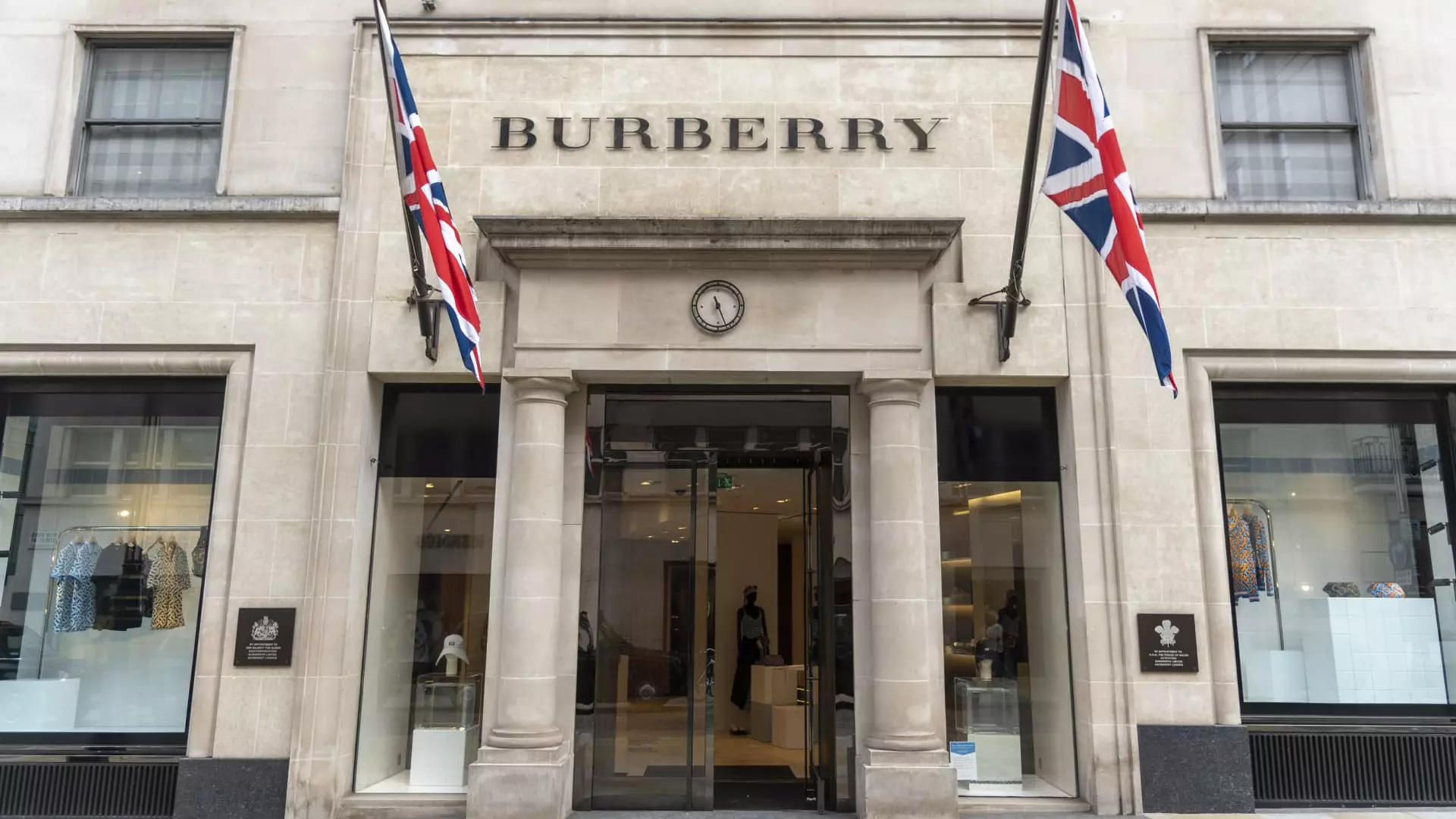Burberry Group, a British luxury fashion house, faced a major setback as it dropped out of the U.K.’s FTSE 100 stock market index. The retailer’s declining sales and a series of management changes culminated in its relegation to the FTSE 250 during September’s quarterly rebalancing. This move marked the end of Burberry’s 15-year run in the FTSE 100 index.
The luxury brand Burberry, founded in 1856 and listed on the London Stock Exchange in 2002, gained international recognition for its iconic trench coats, handbags, and check print. Despite its earlier successes, the brand encountered challenges as its high-end aesthetic was diluted by the adoption of its signature pattern by the British working class. Subsequent efforts by multiple CEOs to revive the company’s image and elevate it to an upmarket brand proved unsuccessful, leading to a loss of market confidence.
The appointment of Joshua Schulman as CEO brought hopes of a new direction for Burberry. Schulman, a former CEO of Coach and Michael Kors, introduced the possibility of a “British Coach” strategy to revamp the company’s fortunes. This involved cost-cutting measures, increased focus on outlets, and enhanced exposure to off-price retailers. Analysts believed that this fresh approach could provide a much-needed boost to Burberry’s struggling financials.
Burberry reported a significant decline in first-quarter comparable store sales, prompting its third profit warning in 12 months and suspension of dividend payments. Analysts warned of the potential for further share price declines if the brand’s momentum was not addressed promptly. There were speculations about Burberry becoming a takeover target if its market share losses were not contained. Schulman’s upcoming strategy update in November raised expectations for further changes at the top leadership level.
Burberry’s struggles were not unique, as the broader luxury sector faced a downturn in consumer spending due to inflationary pressures and economic uncertainty. Chinese luxury consumption, in particular, suffered a significant blow. While some players managed to weather the storm, Burberry’s early acknowledgment of its problems could position it favorably for recovery. With a cyclical nature of the luxury sector, there were ongoing opportunities for Burberry to bounce back.
Despite its removal from the FTSE 100, Burberry could potentially stage a comeback with the right leadership and strategic initiatives. Fresh approaches to branding, cost efficiencies, and market positioning could pave the way for Burberry’s resurgence. Investors awaited Burberry’s half-year financial results in November to assess the impact of recent changes and forecast the brand’s future trajectory.

